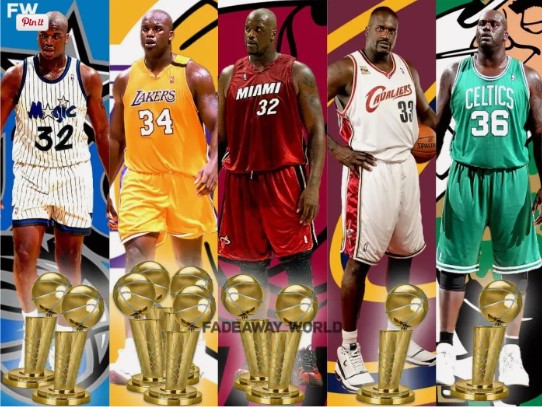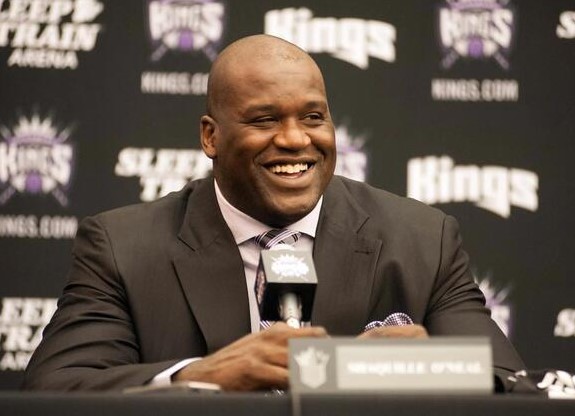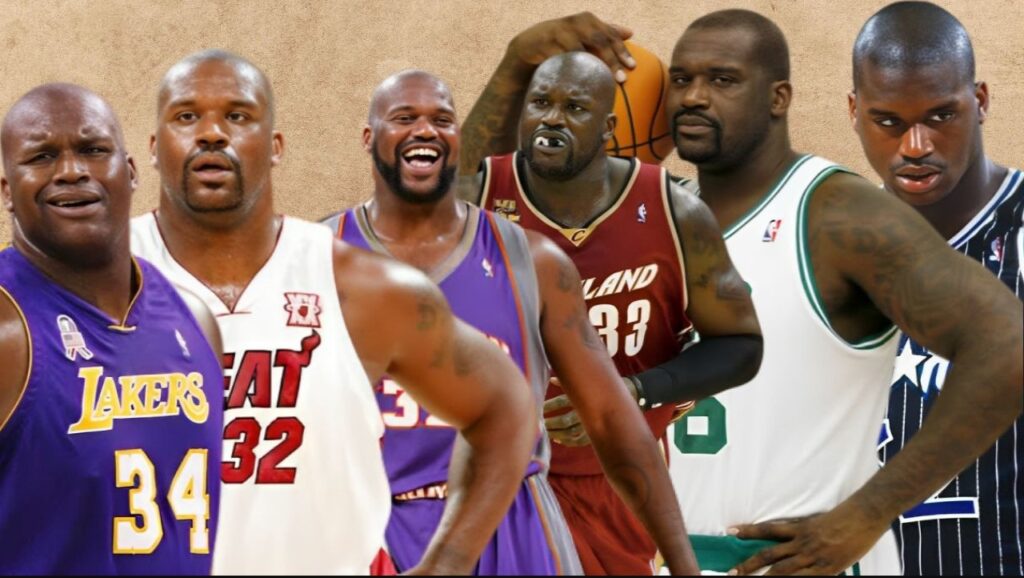Shaquille O’Neal’s Bold Championship Claims: Could The Big Diesel Really Have Won 8-9 NBA Titles?
In a candid and introspective moment during his recent appearance on the OGs Podcast with Udonis Haslem and Mike Miller, NBA legend Shaquille O’Neal made a stunning revelation that has sent shockwaves throughout the basketball community. The four-time NBA champion, widely regarded as one of the most dominant centers in basketball history, boldly claimed that he should have captured eight to nine championship rings during his illustrious career, rather than the four he ultimately secured. This remarkable assertion has sparked intense debate among fans, analysts, and former players about the validity of O’Neal’s claims and whether his legendary career was truly underachieved despite his undeniable greatness.

O’Neal’s championship analysis began with his time alongside LeBron James during the 2009-10 season with the Cleveland Cavaliers, a partnership that many believed could have yielded championship gold. “Bron was a guy I never had to say anything to, and I was so amazed at his leadership and how he played,” O’Neal explained during the podcast, highlighting the mutual respect between two generational talents. The dynamic duo had positioned themselves as the top seed in the Eastern Conference, creating legitimate championship expectations before an unfortunate injury derailed their promising campaign against the Boston Celtics. O’Neal’s hand injury, caused by Glen “Big Baby” Davis during their playoff series, forced him to miss six crucial weeks and ultimately contributed to their elimination from the postseason.
The retrospective journey through O’Neal’s career revealed a pattern of missed opportunities that have haunted the basketball icon throughout his post-playing years. His partnership with Penny Hardaway during the mid-1990s with the Orlando Magic represented one of the most electrifying duos in NBA history, yet they were unable to capture a championship despite reaching the NBA Finals. O’Neal believes that with better circumstances and perhaps different playoff matchups, he and Hardaway could have secured one or two championships together, establishing the foundation for his hypothetical eight-ring collection. The Magic’s Finals appearance in 1995 showcased their potential, but they encountered the dominant Houston Rockets led by Hakeem Olajuwon, who was in the midst of his own championship reign.

Perhaps the most controversial aspect of O’Neal’s championship analysis involves his tumultuous relationship with Kobe Bryant during their time together with the Los Angeles Lakers. While the duo successfully captured three consecutive championships from 2000 to 2002, O’Neal specifically referenced their devastating loss to the Detroit Pistons in the 2004 NBA Finals as a missed opportunity that continues to sting. “Me and Kobe lost to Detroit, should have got that one,” O’Neal stated, acknowledging that the Lakers’ star-studded roster, which included veterans Gary Payton and Karl Malone, represented their strongest championship opportunity. The off-court tensions between O’Neal and Bryant, combined with coaching changes and roster dynamics, prevented what could have been a fourth consecutive championship and cemented their legacy as one of the greatest dynasties in sports history.
O’Neal’s tenure with the Miami Heat from 2004 to 2008 provided another source of championship regret, as he believes the team should have captured two titles during his time in South Beach. His partnership with Dwyane Wade resulted in one championship in 2006, but O’Neal pointed to their first season together as a missed opportunity, when injuries to both superstars prevented them from reaching their full potential. The Heat’s Eastern Conference Finals appearance in 2005, where they fell to the Detroit Pistons, represented a championship-caliber team that was undermined by untimely injuries and perhaps insufficient roster depth. O’Neal’s analysis suggests that with better health and timing, the Heat could have established their own mini-dynasty before the formation of the Big Three era.
The later stages of O’Neal’s career, including his brief stints with the Cleveland Cavaliers and Boston Celtics, complete his hypothetical championship collection despite the diminishing returns of his aging body. His time with the Celtics during the 2010-11 season coincided with the franchise’s attempt to recapture their championship glory, but O’Neal’s limited contributions and the emergence of the Miami Heat’s super team made championship success increasingly unlikely. Nevertheless, O’Neal’s optimistic assessment includes these potential championships in his theoretical total, demonstrating his belief that circumstances and better health could have extended his championship window well into his late thirties.

Critical analysis of O’Neal’s championship claims reveals both the validity of his regrets and the inherent challenges of achieving such sustained success in professional sports. While his assessment of missed opportunities with Penny Hardaway and the Lakers’ 2004 Finals loss carries substantial merit, his expectations for championships during his later career years appear overly optimistic given the natural decline of his physical abilities. The NBA’s competitive landscape during O’Neal’s prime years featured multiple championship-caliber teams, including the Chicago Bulls, San Antonio Spurs, and Detroit Pistons, making sustained dominance extraordinarily difficult even for generational talents.
The comparison O’Neal drew to Robert Horry, who captured seven championships as a complementary player, highlights the complex nature of championship success in professional basketball. While individual dominance like O’Neal’s is rare and remarkable, championship success often depends on factors beyond any single player’s control, including team chemistry, coaching decisions, injury luck, and favorable playoff matchups. O’Neal’s hypothetical eight or nine championships would have represented unprecedented individual success, surpassing even Michael Jordan’s six titles and establishing him as potentially the most successful player in NBA history.
Ultimately, O’Neal’s championship retrospective serves as both a testament to his incredible career and a reminder of the unpredictable nature of professional sports success. While his four championships, three Finals MVPs, and dominant playoff performances cement his legacy as one of basketball’s greatest players, his analysis reveals the thin margins that separate good careers from legendary ones. Whether O’Neal truly deserved eight or nine championships remains a matter of debate, but his honest assessment of missed opportunities provides valuable insight into the mindset of a competitor who consistently expected championship-level success throughout his remarkable career.